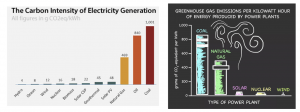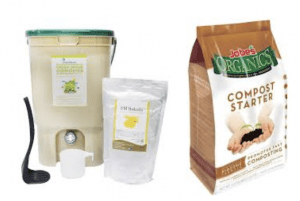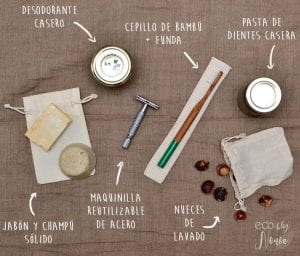Welcome
Introduction
Beef?
Beef has a much higher impact on the environment than chicken or pork, with one expert saying that eating less red meat would be a better way for people to cut carbon emissions than giving up their cars.
The popular red meat requires 28 times more land to produce than pork or chicken, 11 times more water and results in five times more climate-warming emissions. When compared to staples like potatoes, wheat, and rice, the impact of beef per calorie is even more extreme, requiring 160 times more land and producing 11 times more greenhouse gases. (Carrington, Damian. “Giving up Beef Will Reduce Carbon Footprint More than Cars, Says Expert.” The Guardian, Guardian News and Media, 21 July 2014, https://www.theguardian.com/environment/2014/jul/21/giving-up-beef-reduce-carbon-footprint-more-than-cars)
Beef has the second-highest emissions, generating 27.1 kilos of CO2e per kilo consumed. That’s more than twice the emissions of pork, nearly four times that of chicken and more than 13 times that of vegetable proteins such as beans, lentils and tofu. About 30 per cent of the meat consumed in America is beef.



Solution:
Make chicken, pork, fish and eggs instead of beef and lamb. Change beef into sauce.
Solar Power
Solar panels absorb sunlight as a source of energy to generate electricity. It is much more sustainable than coal, oil or natural gas to generate electricity.
Most parts of a solar module can be recycled including up to 95% of certain semiconductor materials or the glass as well as large amounts of ferrous and non-ferrous metals.


The price of solar electrical power has continued to fall so that in many countries it has become cheaper than ordinary fossil fuel electricity from the electricity grid since 2012, a phenomenon known as grid parity.
For example, in 2012 it was estimated that the quantity cost per watt was about US$0.60, which was 250 times lower than the cost in 1970 of US$150. A 2015 study shows price/kWh dropping by 10% per year since 1980, and predicts that solar could contribute 20% of total electricity consumption by 2030, whereas the International Energy Agency predicts 16% by 2050.

Solution:
Although the process of dealing with solar panels is not easy, the lifespan of solar panels is 25 to 30 years, during which there will be no air pollution caused by carbon dioxide from coal burning and no oil pollution to water resources. Human technology is improving, and maybe 25 years from now, people have found a better way to deal with solar panels.
There’s a price, but it’s worth it.
Buying used products
A non-scientific study of Commerce Department data suggests that in February, U.S. consumers spent an annualized $1.2 trillion on non-essential stuff including pleasure boats, jewellery, booze, gambling and candy. That’s 11.2% of total consumer spending, up from 9.3% a decade earlier and only 4% in 1959, adjusted for inflation. In February, spending on non-essential stuff was up an inflation-adjusted 3.3% from a year earlier, compared to 2.4% for essential stuff such as food, housing and medicine. (Whitehouse, Mark. “Number of the Week: Americans Buy More Stuff They Don’t Need.” The Wall Street Journal, Dow Jones & Company, 25 Apr. 2011, blogs.wsj.com/economics/2011/04/23/number-of-the-week-americans-buy-more-stuff-they-dont-need/.)


Solution: Here are some of the best places to buy used goods online:
- Sell.
- Poshmark.
- Gadget Salvation.
- Geebo.
- Letgo.
- Backpage.
- Gone.
- Mercari.
Composting
In interviewing with Ms Veron we have found the 5 ways in which she can most reduce her personal carbon footprint. We found a lot of stuff that she was doing very well and are the main things that we would usually suggest to people trying to live more sustainability so there were only a few places that we could suggest an improvement.
Firstly, composting we have seen that you have a small garden and you said that you would be open to trying composting. To start a compost you can get a compost starter kit with a bucket (Here for $99).
The other option for composting is to use your garden and to buy some worms (40 for $100 here).
You can then just put all of your food scraps and compost materials into the garden and you will have rich fertile soil for growing other stuff


Fly less
Solution:
Try to take non stop flights
Flights under 500 miles it is generally better to take a train of a car
Don’t fly business if possible
Carry less stuff
Carbon offset programs (can be done with the airline )
https://www.usatoday.com/story/news/2018/12/26/flying-bad-environment-heres-what-do/2350488002/

Others
Beeswax wraps- They can sometimes replace refrigerators

Zero waste toiletries- More sustainable

Deodorant dr schmidt- They come in glass bottles, and when you run out of one, you can take it to the shops and refill it

Shampoo bar- No plastic bottles

Buy used school uniform- More sustainable

